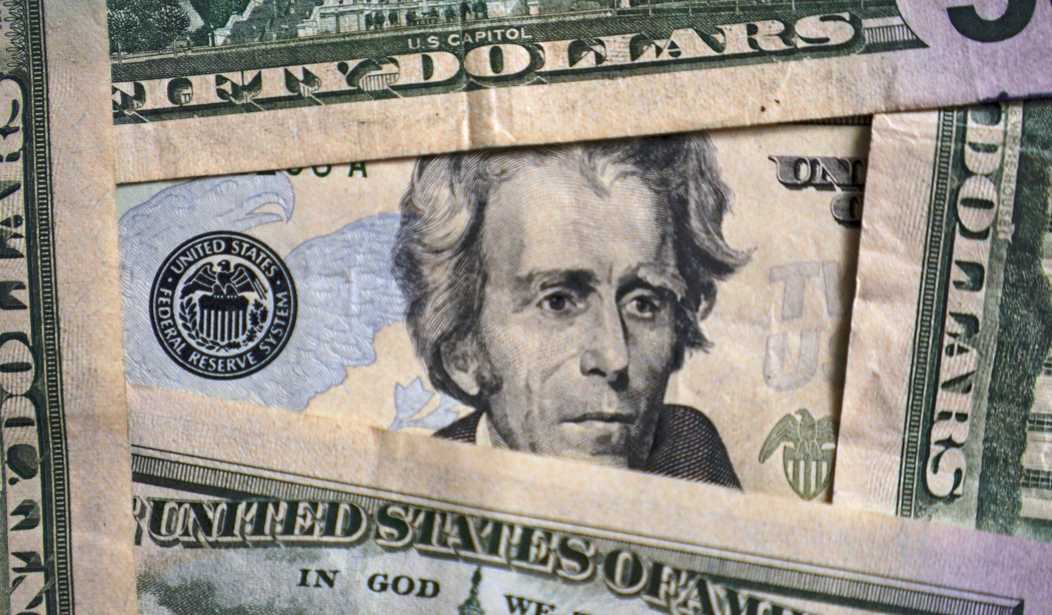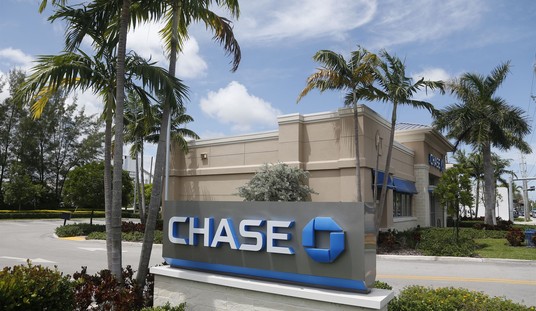In a matter of days, 2023 will be here. The arrival of a new year doesn't appear to have brightened up Americans' feelings on finances and the economy, though. This isn't exactly anything new, as polling has shown discontent with the economy while the country experiences record-high inflation not seen in four decades. President Joe Biden has received particularly low marks for his handling of such a key issue, which as Madeline covered last week, is still a key issue to voters, according to a Fox News poll. Somehow, though, Democrats still managed to perform better than expected in last month's midterm elections, and even expanded their majority in the Senate.
On Monday, Bankrate released a survey of 3,656 U.S. adults who were asked what they think about their financial circumstances for 2023. "Compared to 2022, do you think your personal financial situation in the year 2023 will get better or worse, or stay the same," was one such question.
A sobering 66 percent believe that their finances won't improve, with a plurality, at 36 percent, saying they expect their finances to "stay about the same." Twenty-nine percent say they expect their finances to get worse, with 18 percent believe they'll do "somewhat worse" and 11 percent saying "significantly worse." Thirty-four percent, meanwhile, expect their finances to get better, with 24 percent believing their finances will "get somewhat better," and 10 percent, the lowest response of any of the options, saying it will "get significantly better."
As to why Americans are so despondent, they're not stupid. They know to blame inflation. A whopping 63 percent responded with "continued high inflation," when asked "Which, if any, of the following are reasons why you think your personal financial situation will not improve in 2023? Please select all that apply." Respondents were given seven choices to select. The next highest choice, at a very distant second, was the "work done by elected representatives," which came in at 29 percent.
It's quite possible, likely even, that such a response has to do with inflation as well. For in March of last year, Congressional Democrats passed the American Rescue Plan Act, despite warnings that it would lead to the massive inflation we're experiencing today. No Republican voted in favor of the bill, and Rep. Jared Golden (D-ME) also bucked his party to vote against it.
Recommended
Bankrate's write-up by Sarah Foster and Amy Sims includes a quote from Greg McBride, CFA, who is the Bankrate chief financial analyst, about the findings. "Inflation is high and there isn’t a lot of optimism that it will come down in a meaningful way. Even among those expecting their finances to improve in 2023, just 19 percent felt that would be due to lower inflation," he's quoted as saying.
When it comes to what Americans think will improve their finances, most are looking to other remedies beyond fixing inflation. A plurality, at 41 percent, say that "making more money at work" will improve their situation for 2023. Thirty percent said "having less debt." At the 19 percent that McBride is quoted mentioning above when it comes to "lower levels of inflation," it's third from the bottom of choices that respondents picked. Americans are even less confident in their elected officials making any changes, as 15 percent believe that the "work done by elected representatives" will help.
The poll was conducted November 15-18.
Making for a more foreboding sentiment about finances is talk of a recession. "The findings highlight next year’s rocky economic outlook, as experts warn of an increasing likelihood of a recession amid the Federal Reserve’s rapid rate hikes. High inflation on everyday essentials such as gasoline, housing and food is also biting into Americans’ purchasing power," Foster and Sims wrote in their write-up, linking to a piece from October that put chances of a recession by mid-2024 at 65 percent.
Americans remain particularly concerned about a recession, as Caroline Vakil reported for The Hill last week about a poll conducted by Morning Consult for the Bipartisan Policy Center, which found that a whopping 87 percent of respondents said they were very or somewhat concerned about a recession.
That poll was conducted December 8-December 10, with 2,006 registered voters and a margin of error of plus or minus 2 percentage points.
Adding insult to injury with these concerns is that the Biden administration has continuously downplayed chances of a recession. Vakil pointed to remarks made by Treasury Secretary Janet Yellen from earlier this month while on CBS News' "60 Minutes."
When Norah O'Donnell pointed to "families who are paying more at the grocery store" and asked "when 2023 comes around, do they need to be worried about a recession," Yellen tried to dismiss concerns. "There are always risks of a recession, the economy remains prone to shocks. But look, we have a very healthy banking system. We have a very healthy business and household sector," she offered.
"You have said this, you do not believe there will be a recession next year," O'Donnell pushed back with, leading Yellen to respond that "there’s a risk of recession, but it certainly isn’t, in my view, something that is necessary to bring inflation down."
President Joe Biden himself has also downplayed that concern, including and especially when it comes to an October interview he did with CNN's Jake Tapper.
BIDEN: "There’s no guarantee that there's gonna be a recession—I don’t think there will be a recession. If it is, it will be a slight recession. That is, we’ll move down slightly." pic.twitter.com/T22TUI9Xcv
— Townhall.com (@townhallcom) October 12, 2022
When it comes to the metrics of two consecutive quarters of negative GDP growth to define a recession, the United States has already been experiencing one when it comes to the second quarter GDP results, though the Biden administration has been gaslighting on that by insisting on other definitions.
Then again, this is the administration that has continuously claimed that the economy is "strong," even when the American people believe otherwise. Sadly, all of this may be par for the course.

























